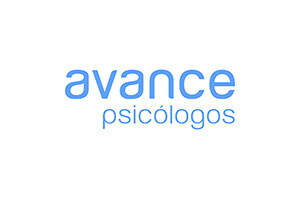Atypical depression: symptoms, causes and treatments
Atypical depression It is a type of depression that accounts for the complexity of this group of mental disorders. It is a sign that what we popularly call "being depressed" is a phenomenon complex psychological that can be expressed under a great variety of symptoms classifiable from different ways.
Next we will see what are the symptoms of atypical depression, what characteristics differentiate it from other types of depression and what kinds of treatments have been shown to be effective in intervening in these cases.
- Related article: "Are there several types of depression?"
What is atypical depression?
Atypical depression is a depressive disorder that, despite having many of the characteristics of major depression, also expresses other atypical and rare symptoms in this class of psychopathological disorder.
For example, although the main symptoms of this group of disorders are present in atypical depression, such as sadness or anhedonia and apathy, also other signs and symptoms appear, such as an exaggerated reaction to events perceived as negative, an extreme increase in sleep and the need to sleep, etc.
Generally speaking, atypical depression it is considered little prevalent, that is, rare and rarely diagnosed. Most cases of depression receive another diagnosis.
- You may be interested: "The 6 differences between sadness and depression"
Symptoms of atypical depression
The symptoms of atypical depression can be very varied, especially considering the infrequency with which it is diagnosed. Among the signs and symptoms most related to this type of depression are the following.
1. Hypersomnia
The person feels a deep need to sleep, which produces psychosocial and work problemsas it interferes with your work. This also produces greater isolation, and has a negative impact on the possibility of developing motivating projects.
In the end, the problems to organize a schedule, as well as the lack of social life that is a consequence of the hypersomnia, they make the day to day of the person with atypical depression become increasingly monotonous, lacking in stimuli novel.
2. Hypersensitivity
Many people with atypical depression feel that any sign means that there is a negative situation for them. For example, an ambiguous reaction from another person is interpreted as a show of rejection or ridicule, or a failure. Relative, such as not arriving on time for a bus that has already started, is seen as a sign that the day will be catastrophic.
However, this reactivity also usually appears in the face of positive events, although to a lesser degree than that expressed in unpleasant situations. This ability to react relatively cheerfully to positive situations is something that is not occurs in most cases of depression, and is one of the hallmarks of depression atypical.
3. Extreme increase in appetite
In major depression, it is typical for patients to experience a significant decrease in the sensation of hunger, coupled with a general attitude of passivity and lack of initiative.
In atypical depression, however, hyperphagia is relatively common, closely associated with psychological states marked by excess anxiety. For this reason, binges and frequent visits to the refrigerator can appear, which appear as a form of compensatory behavior, to distract from those thoughts that generate anxiety.
4. Exhausted
Many of the patients with this type of depression feel a despondency that takes them to remain a long time in a state of rest in a bed or sofa. This, at the same time, helps them feel more isolated and alone, which fuels the vicious cycle of depression. The lack of energy is expressed in all facets of life, from work life to social life and the attention of the basic needs of food, hygiene and home care.
5. Anxious states
This is a group of symptoms related to anxiety states typical of other mental disorders and which, in the case of depressive disorders, are much less common. For example, the person with atypical depression may feel anxious when he is aware of her bad condition, or he may be very concerned about the image that he is giving in front of others. This feeling of discomfort adds to the damage to the quality of life produced by the symptoms typically associated with depression.
- You may be interested: "Types of Anxiety Disorders and their characteristics"
Its causes
As in most mental disorders, the reason for atypical depression appears has to do with multi-causal phenomena. This means that biological and genetic elements, but also cultural and, in addition, factors associated with the dynamics learned of interaction with the environment and with the rest of people.
For example, a traumatic event can trigger genetically latent biological processes, and the way in which This experience is lived will be influenced by the culture that has been internalized and by the learning and traditions,. Neither environment nor genetics are solely responsible for atypical depression.
Treatments
Psychotherapeutic intervention is very relevant in the treatment of atypical depression, since it allows to train patients in a large number of habits and social skills that will allow them to improve their quality of life (without making the symptom).
Specifically, cognitive behavioral therapies allow to act both on daily behavioral habits and on ideas, beliefs and styles of thought, to achieve effects both in actions linked to movement and interaction with the environment such as in the mind and the way in which what is going is perceived and interpreted happening.
Regarding treatment with psychotropic drugs, this is also frequent in medical intervention in cases of atypical depression, especially considering the severity of this disorder and the way in which it affects practically all areas of life personal and work.
The most commonly used medications are usually antidepressants, such as selective serotonin reuptake inhibitors (SSRIs) and monoamine oxidase inhibitors (MAOIs). Both are drugs whose use can only be initiated by medical prescription, and their consumption must be monitored by expert personnel in mental health and psychiatry.
- Related article: "Types of antidepressants: characteristics and effects"

